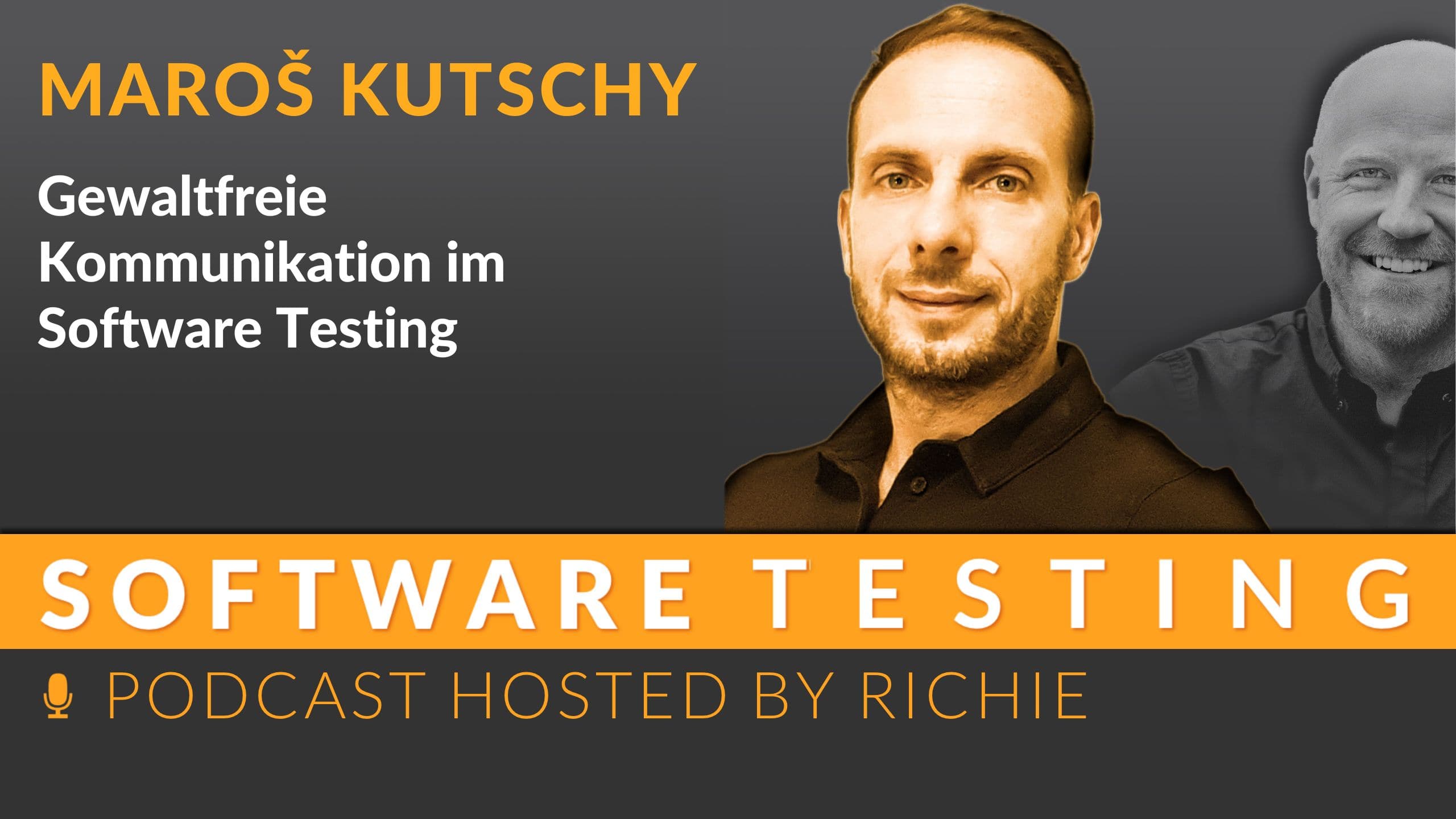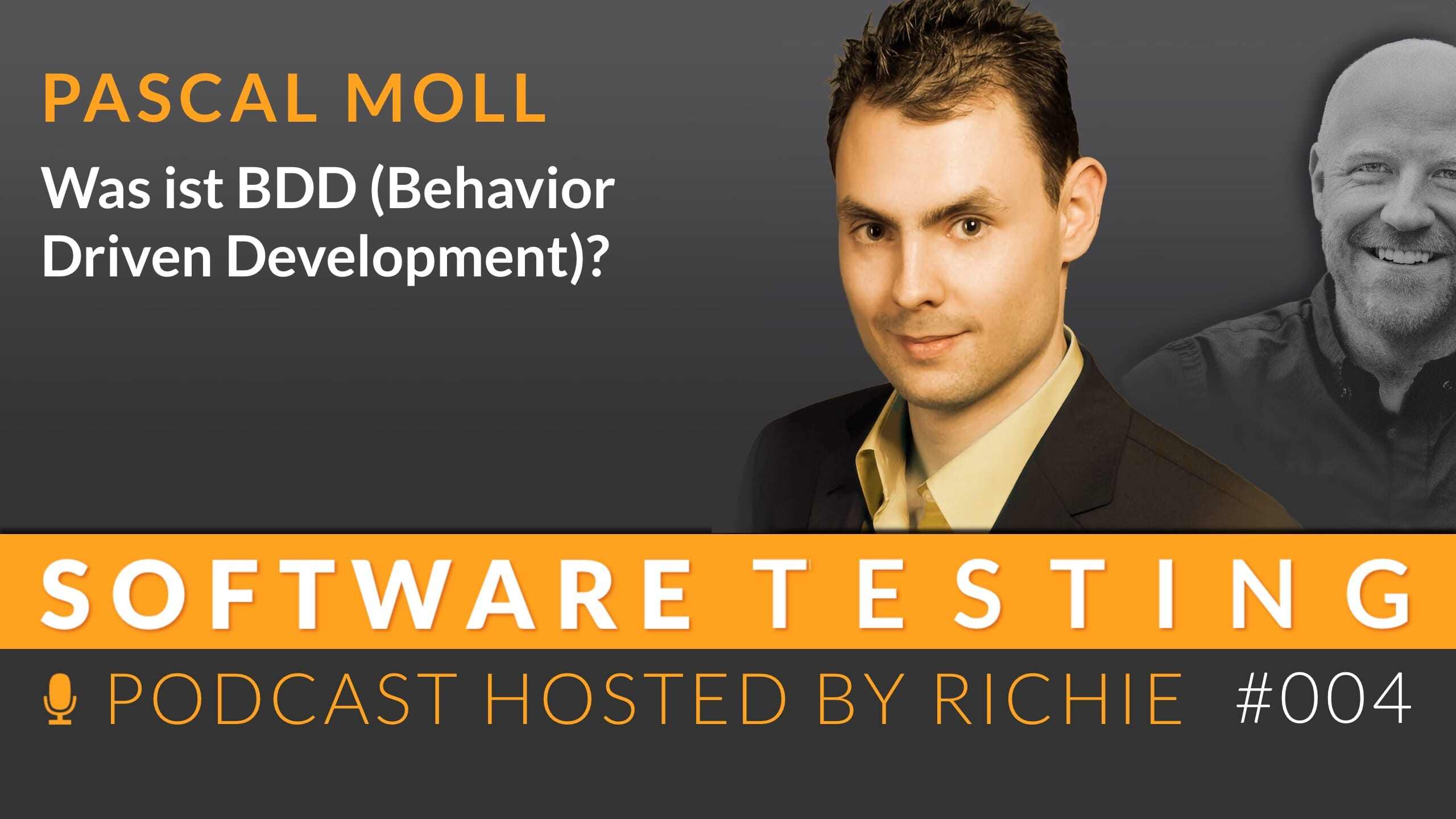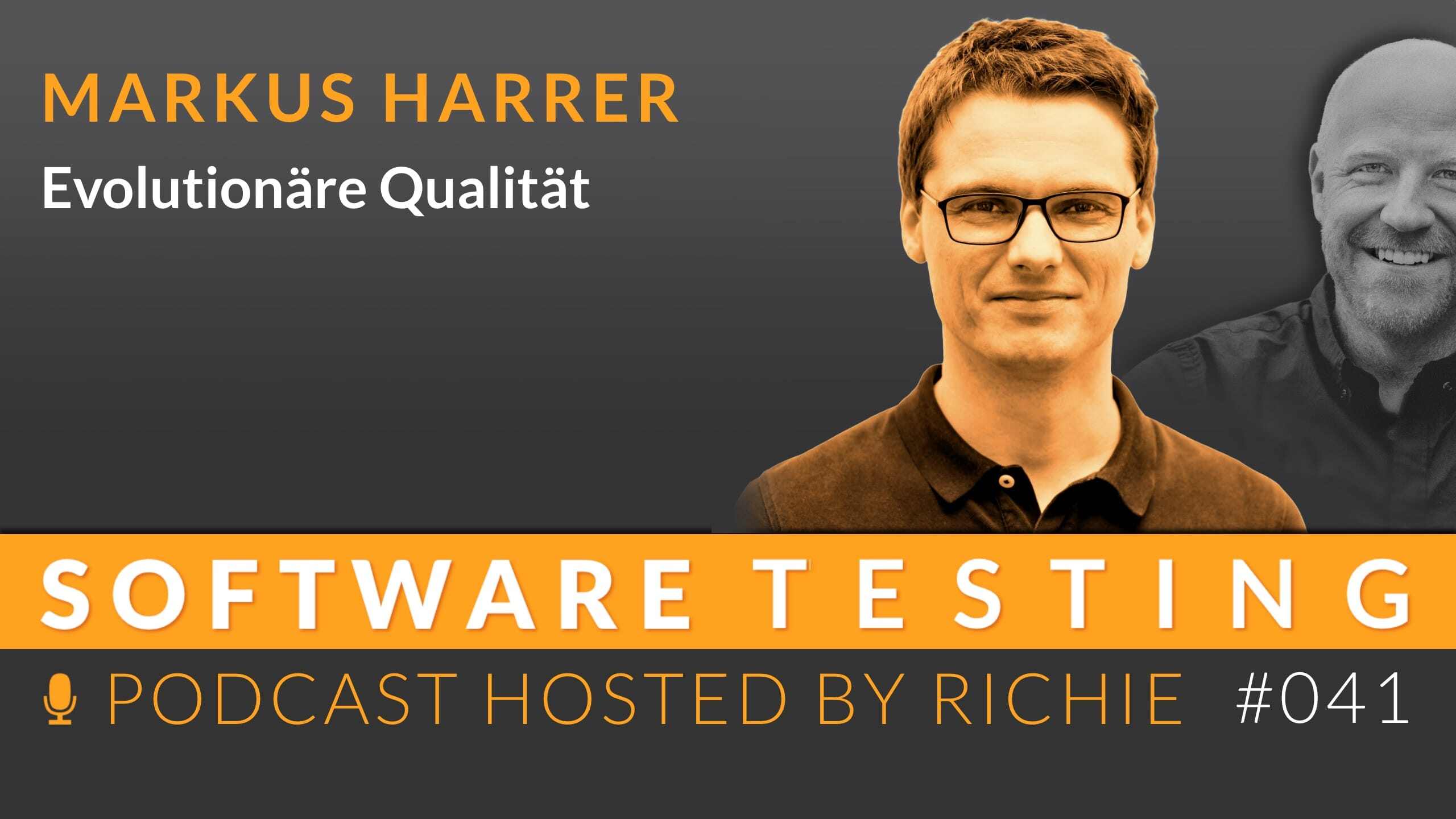Quality assurance in agile projects
Podcast Episode: Quality assurance in agile projects In this podcast episode, agile testing expert Christian Mercier focuses on quality assurance in...

Interpersonal communication is key in software development teams. Testers often work at interfaces where information exchange is not only technically complex but also emotionally challenging. This is where the concept of non-violent communication (NVC) can help. It is based on four elements: observation, feeling, need, and request. The goal is to take responsibility for your own feelings, separate observations from judgments, and formulate clear and achievable requests. This form of communication takes practice and self-reflection and fosters strong relationships and respectful interaction, even in stressful situations.
In this episode, I talk to Maroš Kutschy about non-violent communication. Sounds like a cuddly course at first - but it's actually a pretty sharp tool when it comes to tackling conflicts constructively. Maroš explains how to better navigate through project chaos with observations instead of evaluations, genuine feelings, clear needs and clear requests. I found his examples from everyday testing particularly interesting - we all know them. It was a real reminder for me: technology is important, but communication changes culture. And we urgently need that.
"As testers we need to communicate a lot - with developers, with product owners, with architects. It never stops." - Maroš Kutschy
Maroš is QA Technical Lead at Ness Košice, Slovakia. His hobby is automation testing. He likes leading and mentoring colleagues, learning new automation testing framework and helping people to enter the world of testing. In 2022 he was speaking at Testing United in Prague, Nordic Testing Days in Tallinn, Tacon in Leipzig, HUSTEF in Budapest, and 'est Dive in Cracow. In 2023 he was speaking at Software Quality Days in Munich, HalfStack in Vienna, SEETEST in Bucharest and SANAE BEER.EX in Bratislava. He likes self-improvement and leadership books, stoic philosophy, and exercising in the gym.
Communication plays a crucial role in software testing. Testers are constantly faced with the challenge of interacting effectively with different stakeholders. This is where the concept of non-violent communication (NVC) according to Marshall Rosenberg comes in. This method offers a structured approach to avoid misunderstandings and improve teamwork.
Soft skills and targeted communication methods are becoming increasingly important, especially in the IT industry, as they can have a significant impact on the efficiency and success of test processes. Testers and teams who have mastered these communication strategies can resolve conflicts, give clear instructions and create a harmonious working environment.
An Agile Coach can provide valuable support in this context. Such coaches help teams and managers not only with agility, but also with improving communication and process optimization.
Marshall Rosenberg's NVC model comprises four essential components that are helpful when applied in the software testing environment:
Neutral statements help to avoid misunderstandings.
The importance of real feelings as opposed to subjective interpretations is emphasized.
The connection between feelings and the underlying needs is made clear.
Unclear requests often do not lead to the desired result.
The ability to communicate observations without judgment helps to exchange information objectively and precisely. It is also important to clearly express authentic feelings and distinguish between these and subjective interpretations. Disclosing needs and taking responsibility for them creates a transparent level of communication that enables deeper understanding. In addition, clear requests play a crucial role in ensuring that one's needs are understood and responded to appropriately.
Applying these four components of non-violent communication can significantly improve the effectiveness of communication in software testing and contribute to a more harmonious and productive team environment. One example of this is the Software Testing Survey 2024, which provides valuable insights into the industry. In addition, the implementation of DevOps principles can contribute to how collaboration, communication and continuous improvement can optimize software development.
Empathic listening plays a crucial role in the application of Nonviolent Communication in software testing. It involves listening fully, without interruption, to truly understand the perspective of the other person. This focus on active listening makes it possible to avoid misunderstandings and establish a deeper connection.
We often fall into the trap of bringing in our own experiences while listening instead of giving the other person space. True listening requires attention and empathy in order to grasp the needs and feelings of the other person and respond appropriately.
The practical application of non-violent communication (NVC) in software testing can encounter various challenges that need to be overcome:
Despite these hurdles, the integration of Nonviolent Communication offers significant benefits for software testing:
These aspects are particularly important during acceptance testing, where clear communication is crucial to avoid frustration.
In addition, the CSF plays a crucial role in quality assurance in agile projects, as it helps to improve software quality through clear communication and modern technologies.
The conscious application of the CSF can therefore not only improve communication in testing, but also have a positive influence on the team climate.
The conscious integration of non-violent communication (NVC) into everyday working life promotes sustainable communication development in software testing. By applying the four components - observations, feelings, needs and clear requests - you can strengthen your soft skills in testing in a targeted manner.
"Nonviolent communication in software testing not only creates clarity, but also appreciation and empathy in the team."
These skills help you to reduce conflicts and make collaboration with stakeholders more efficient. Continuously practicing and consciously using NVC is the key to improving your communication culture in the long term.
Non-violent communication (NVC) according to Marshall Rosenberg is a communication model based on four components: Observing without judgment, expressing feelings, disclosing needs and making clear requests. NVC is important in software testing because it reduces misunderstandings, promotes teamwork and contributes to appreciative communication.
In software testing, the four NVC components help to observe neutrally without judging, express real feelings clearly, disclose needs and take responsibility, and formulate clear requests. This makes communication more precise and avoids misunderstandings.
Empathic listening is central to the successful application of NVC in everyday testing. It means listening fully and actively without interrupting or interjecting your own stories. This enables testers to respond better to colleagues and stakeholders and communicate more effectively.
One challenge is to overcome the autopilot mode and consistently apply all four components of the CSF. It is often difficult to set aside evaluations or formulate clear requests. Nevertheless, consistent application leads to improved cooperation and appreciative team communication.
By consciously integrating CSFs, testers develop sustainable soft skills, improve team collaboration and create a culture of open communication. This not only promotes the quality of testing, but also the working atmosphere as a whole.
Testers should regularly reflect on how they communicate, actively listen empathically and practise the four NVC components. It helps to consciously take time for conversations and to formulate clear requests instead of vague expectations. In this way, step by step, NVC becomes an integral part of everyday working life.

Podcast Episode: Quality assurance in agile projects In this podcast episode, agile testing expert Christian Mercier focuses on quality assurance in...

Podcast Episode: What is BDD (Behavior Driven Development) In this podcast episode, BDD expert Pascal Moll discusses the basics of Behavior-Driven...

Podcast Episode: Evolutionary Quality Evolutionary quality refers to the adaptation of software qualities through different phases of evolution:...